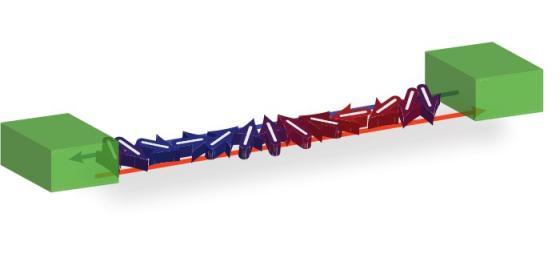Recently , topological states of matter, whose properties are robust against the variation of parameters, have attracted a lot of interest in the scientific community. Such topological states represent promising candidates for future applications in nanoelectronics and information technology. Among them, the integer and the fractional quantum-Hall liquids have been studied since 1980. They are characterized by chiral edge excitations which exhibit fractional charge and statistics. More recently, a new class of two-dimensional topological states, the so called topological insulators, have been discovered. Their helical edge excitations, with spin and chirality interlocked, are “protected” by the time-reversal symmetry.
In this line of research we investigate the out-of-equilibrium properties of charge and spin in such systems, studying several different geometries which allow to highlight the peculiar topological properties of such materials. Among the techniques we employ are out-of-equilibrium statistical mechanics methods, field theory tools and specific models to deal with one-dimensional systems. Also quantum dissipation methods are adopted.

Some of the most interesting results which we have obtained are the demonstration of the relevance of tunneling for agglomerates of fractional charges in fractional quantum Hall bars and the related calculation of the finite-frequency shot noise as the one measured in a resonant circuit. In the field of topological insulators, we have shown how it is possible to generate spin-polarized currents and how to create peculiar spin patterns driven by the pumping of system parameters.


